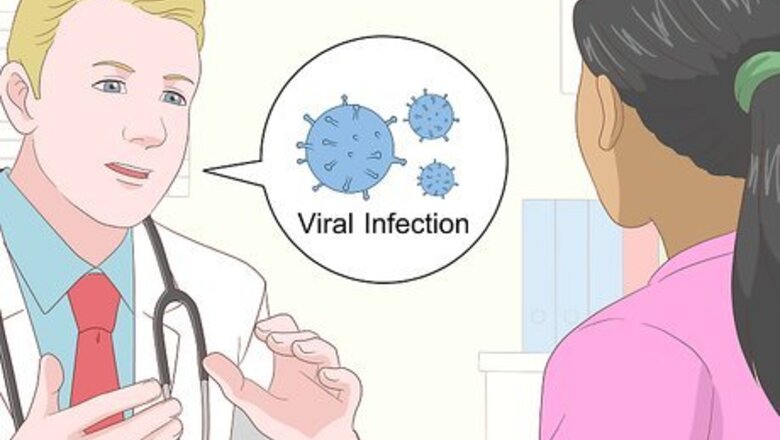
views
Consulting with Medical Professionals
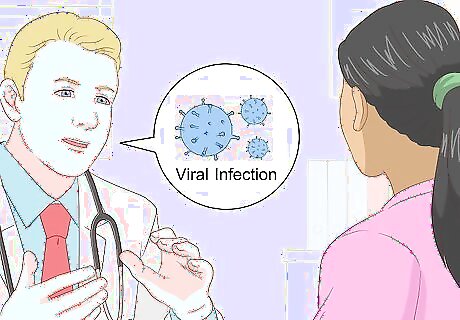
Discuss the cause of your low WBC count with your doctor. A low WBC count can result from a wide variety of medical conditions. You doctor will have to administer tests in order to better understand your situation if the cause isn't obvious, such as a viral infection, autoimmune disease, HIV/AIDS, cancer or cancer treatment, or a prescription medication. Understanding why your WBC count is low will help you and your doctor come up with specific solutions.
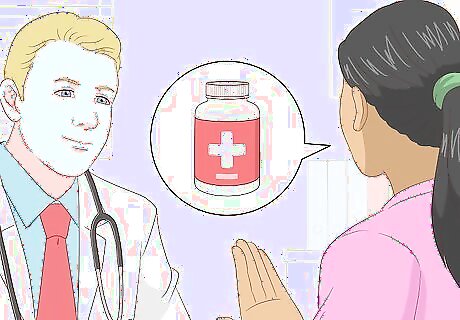
Ask if they recommend medication. There are several medications available that stimulate WBC production. All medications have benefits and risks, so be sure to ask your doctor about potential side effects. Ask your doctor, “Are there prescription medications that would be beneficial for my situation? What are my options with the lowest associated risks? Should I try dietary changes or natural remedies before taking medication?” Risks and side effects of medications that stimulate WBC production can include allergic reactions, low fever, bone pain, discomfort at the injection site, weakness, diarrhea, and flu-like symptoms.

Consult a registered dietitian. A registered dietitian will help you create a meal plan customized for your specific needs. If you're undergoing chemotherapy or other treatment for a chronic medical condition, talk to your treatment center about seeing their dietitian. You can also ask your primary doctor or specialist caregiver for a referral. Your personalized meal plan might include modifications to your daily recommended nutrients, like adding more protein than normally recommended to your diet. Your dietitian can also help you with recipes, safe food handling, and consult about adding supplements. Tell your dietitian about your eating habits and any difficulty you have maintaining proper nutrition, such as loss of appetite, nausea or vomiting, and diarrhea. They can recommend foods and supplements that can help you get the nutrients your body needs to produce blood cells.
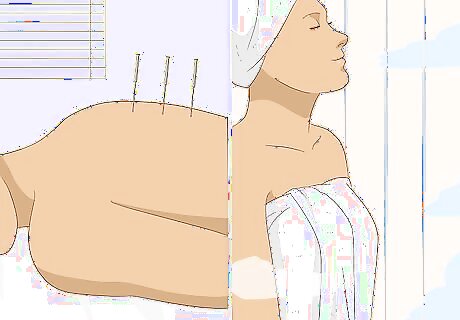
Discuss natural remedies with your doctor or specialist. Acupuncture has been shown to increase WBC production and promote bone marrow repair during chemotherapy. Sauna bathing also stimulates the immune system, particularly in athletes. Talk to your doctor before trying natural remedies, especially if you're receiving chemotherapy or other treatment for a chronic medical condition.
Modifying Your Diet

Eat five to nine servings of vegetables per day. Vitamins A and C play a major role in the immune system's function. Mix up the color and kind of vegetables you eat in order to provide your body with the nutrients it needs to produce blood cells. Eat leafy greens, like kale and spinach, as well as orange vegetables, like carrots. Be sure to talk to your doctor about any dietary restrictions due to medications like blood thinners.

Eat lean proteins. Protein provides your body with the amino acids necessary for WBC production. Choose lean proteins, like seafood, skinless poultry, lentils, and beans. Consume between 0.8 and 1 gram of protein per kilogram of your body weight daily. If you weigh 130 pounds (about 59 kg), you should consume a minimum of 47 grams (about 1.7 ounces). Avoid processed or deli meats. If you're undergoing cancer treatment, you'll likely need more protein than recommended. Ask your registered dietitian how much daily protein you should eat.
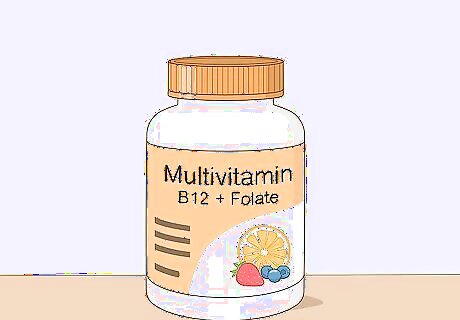
Consider a multivitamin supplement with vitamin B12 and folate. Multivitamin supplements can be helpful if you're having trouble eating during medical treatment. If you're undergoing any treatments, it's essential to get a recommendation from your specialist or dietitian. Some vitamins and minerals can be harmful during cancer therapy or interfere with chemotherapy or radiation. Selenium and zinc can help your body produce more white blood cells. Consult your doctor before taking any vitamins or supplements.
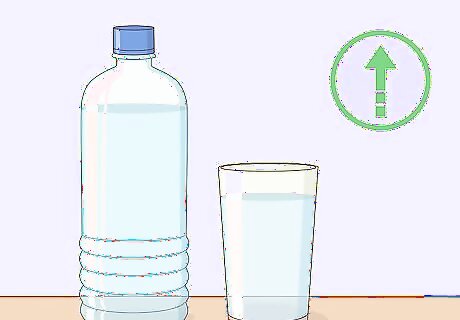
Drink more water. You should drink at least 64 fluid ounces (1.9 L) of water every day. Water is essential to the function and production of cells. You may need to drink extra water if you're vomiting, experiencing diarrhea, or not eating much. If you're undergoing chemotherapy or radiation treatment, talk to your dietitian about goals for water intake.

Reduce your activity level. While your immune system is compromised, it's important that you take time to rest. If you overwork yourself, it can cause your condition to worsen. Instead, plan breaks into your day, say "no" to unnecessary activities, and ask for help when you need it. Remember that it's okay to ask for help. Don't say yes to things that aren't important to you. Spend your limited energy on your priorities. When asked to do something you don't want to, say, "I'm sorry, I have another commitment," or "That sounds wonderful. I wish I could participate, but it's just not a good time for me right now."

Sleep more. While it may seem difficult to get the sleep you need while you're worried about your health, it's essential that you get a good night's sleep every night. Too little sleep can further reduce your white blood cells, worsening your condition. Set a bedtime and discuss it with those who live with you. Follow a calming sleep routine. For example, get ready for bed earlier, take a warm bath, lower the temperature of your home, lower the lights, and do a calming activity such as reading or knitting.
Taking Hygienic Precautions
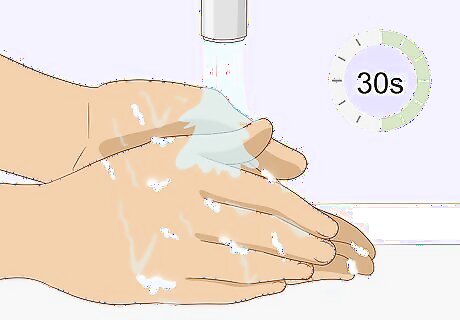
Wash your hands thoroughly with antibacterial soap. Wash your hands for 30 seconds with warm water throughout the day. Wash well after using the bathroom, shaking hands, and touching door knobs and other commonly handled surfaces. Always wash well before handling or preparing food. Avoid touching or cleaning things like litter boxes, bird cages, and fish tanks.
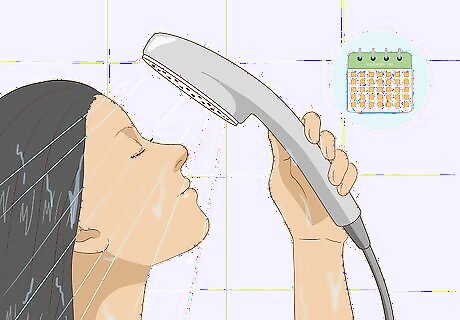
Bathe daily and stay clean. It's important that you stay clean to avoid infection, so make sure that you regularly bathe and wash up if you get dirty. Depending on your day, you may need to wash yourself more than once. After your bath or shower, put on clean clothes. You may want to wear your favorite pair of pajamas or sweats all of the time, but these can become soiled.
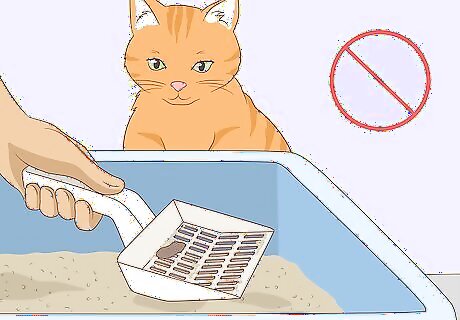
Avoid cleaning the cat litter box. Cat litter is teeming with bacteria, as well as the parasite toxoplasma. Toxoplasma can cause an infection in those with a low white blood cell count, further weakening your immune system. If you have a cat, ask someone else to clean its litter box. Say, "I know it's unpleasant, but could you please clean the cat's litter box? I can't risk an infection."

Avoid contact with plants and pets. Soil, standing water, and dirty animals both harbor germs and bacteria, which can set back your recovery. If you are receiving get well plants or flower arrangements, ask someone else to change out the water or tend to them. If you have a pet, take care when you interact with it. Have it groomed if it goes outside, and wash up after petting it. Don't do any gardening or activities that involve you coming in contact with dirt or soil.

Avoid hot tubs. Hot tubs are home to a lot of bacteria, but the big concern is that the heat and bubbles from the hot tub combine to make the bacteria more dangerous. Bacteria can become part of the mist that forms over the hot water, making it easy to inhale the infectious agents. If you have low white blood cells, you can easily succumb to an infection from hot tub bacteria.

Avoid crowds. Crowds are an invitation for germs. Stay away from shopping malls, theaters, restaurants, and anywhere that people congregate. When your white blood cells are low, you are more likely to contract an infection, which will further take a toll on your body.
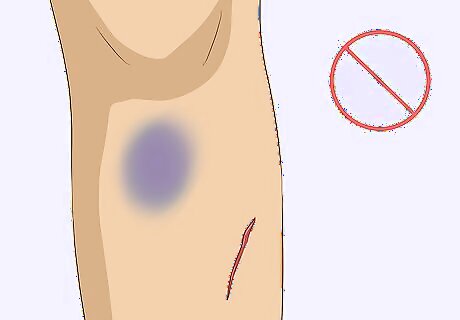
Avoid cuts, scrapes, and other injuries. A low WBC count makes getting scrapes or cuts especially hazardous. With a weakened immune system, these can easily turn into major infections. Avoid dangerous activities and make small daily adjustments to avoid minor injuries. Take special care when brushing teeth to avoid bleeding gums. Ask someone to cut vegetables or meat for you when preparing food. Use an electric shaver instead of a razor to avoid cutting or nicking yourself while shaving.
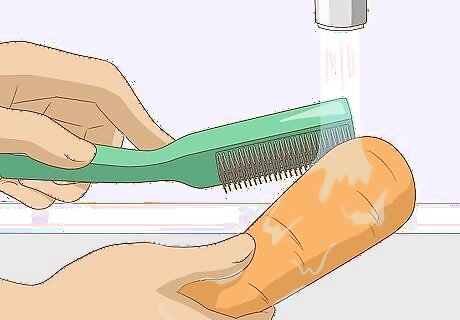
Wash fruits and vegetables well before eating them. In the past, patients with low WBC counts were told to avoid raw fruits and vegetables, but this is no longer advised. However, you should carefully wash any fruits and veggies before eating, especially those that don't have a thick skin or peel. Oranges, bananas, and melons are examples of fruits that are peeled before eating. Use a clean veggie scrubber and cool running water to wash your produce. Even if a salad package is marked pre-washed, use a colander to rinse its contents under running water.

Use safe refrigeration practices. Make sure your refrigerator temperature is below 40 degrees Fahrenheit (4.4 degrees Celsius). Don't let foods that should be refrigerated sit out for more than an hour. Avoid foods that are past their expiration date or appear slimy or moldy. Always thaw frozen meat in the refrigerator.
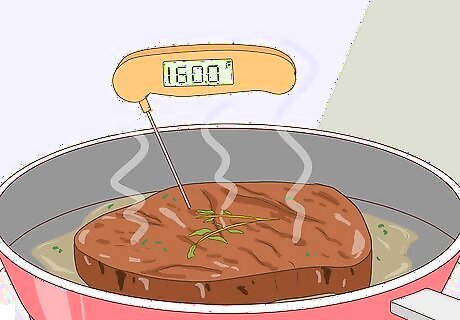
Use thermometers when cooking. Always avoid undercooked or raw eggs, meat, fish, and poultry. When cooking these items, use a thermometer to check for doneness. Cook red meat to 160 degrees Fahrenheit (71 degrees Celsius) and poultry to 180 degrees Fahrenheit (82 degrees Celsius). Cook eggs until both yolks and whites are solid and not runny at all. Consider using pasteurized egg whites, and make sure egg-containing products, like mayonnaise or eggnog, are pasteurized.
















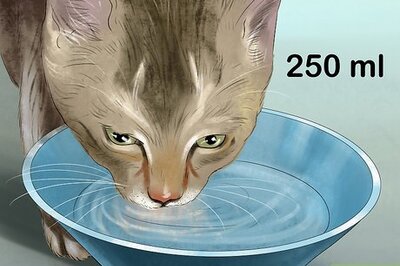



Comments
0 comment